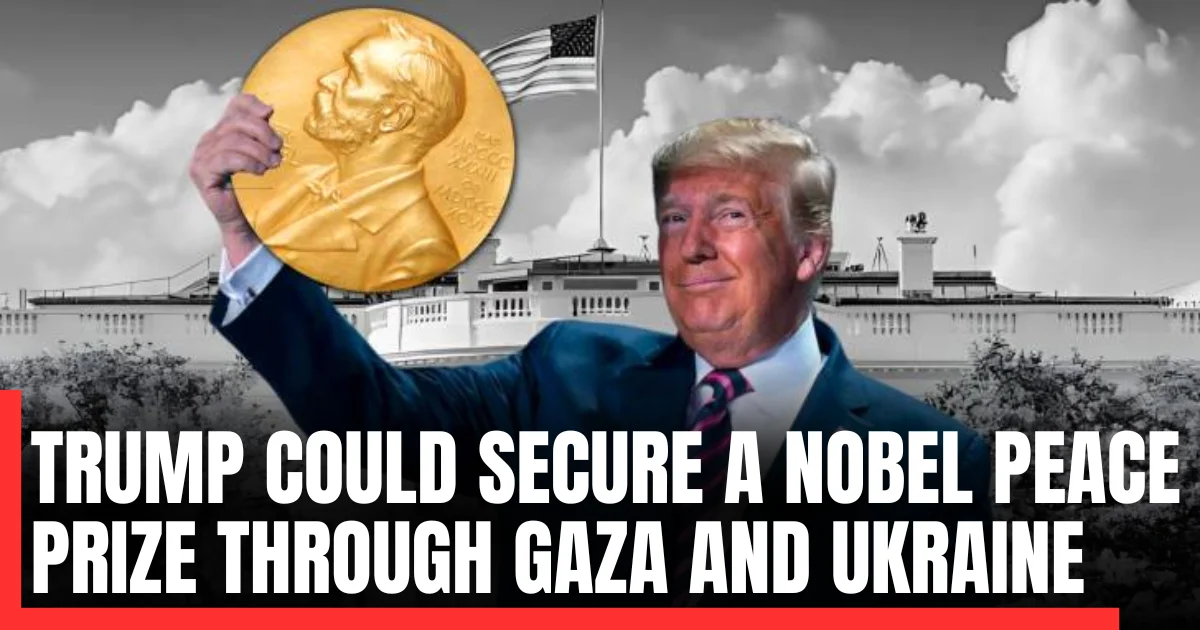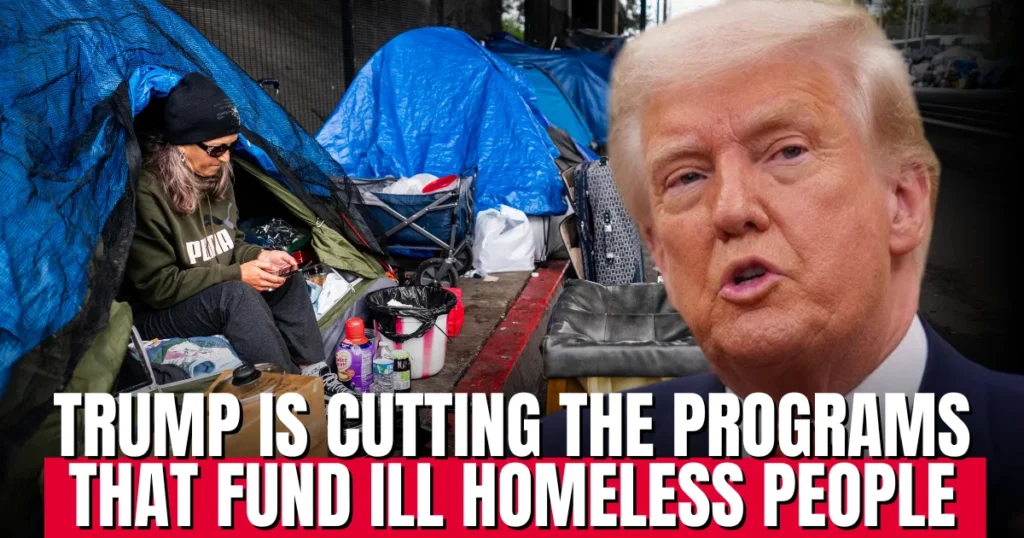Discover how Trump could secure a Nobel Peace Prize through Gaza and Ukraine diplomacy. Full analysis, steps, and global implications explained.
Table of Contents
Can Trump Really Win a Nobel Peace Prize? Yes. Here’s How
Introduction
President Donald Trump has openly pursued one of the world’s most prestigious accolades—the Nobel Peace Prize. While supporters argue he already deserves it, critics remain skeptical, citing controversial policies. However, Trump’s involvement in shaping potential peace settlements in Gaza and Ukraine positions him for a legitimate claim, especially if he successfully helps end these longstanding conflicts.
This article explores the pathways, policies, and diplomacy that could lead to Trump’s Nobel moment in 2026.
The Ukraine Peace Framework
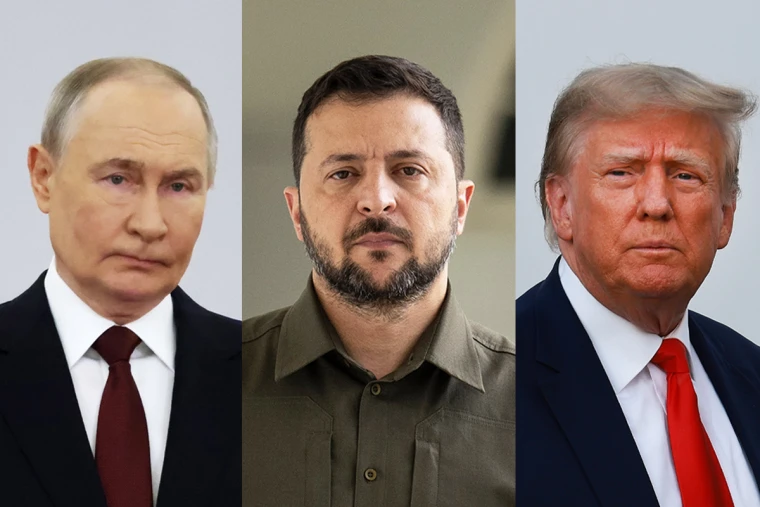
A Complex War and the Emerging Deal
Trump inherited one of the 21st century’s toughest conflicts in Ukraine. After months of summitry with President Zelensky, Vladimir Putin, and European leaders, a potential settlement is emerging.
Key elements of the deal include:
- Security Guarantees: Commitments from the US and NATO allies to support Ukraine militarily, defending its sovereign borders.
- Territorial Adjustments: Land swaps along current frontlines to stabilize eastern Ukraine while ensuring long-term peace.
Achieving this requires consistent military aid, air defense support, and economic sanctions on Russia. Recent UN General Assembly discussions suggest Europe may even leverage $300 billion in frozen Russian assets to strengthen Ukraine’s economy and defense.
Increasing Odds of a Settlement
With over 1 million Russian casualties and a struggling economy, Moscow faces mounting pressure to negotiate. Trump’s sustained diplomatic and economic strategies could potentially bring Russia to the negotiating table, paving the way for a settlement before the Nobel Peace Prize 2026 selection.
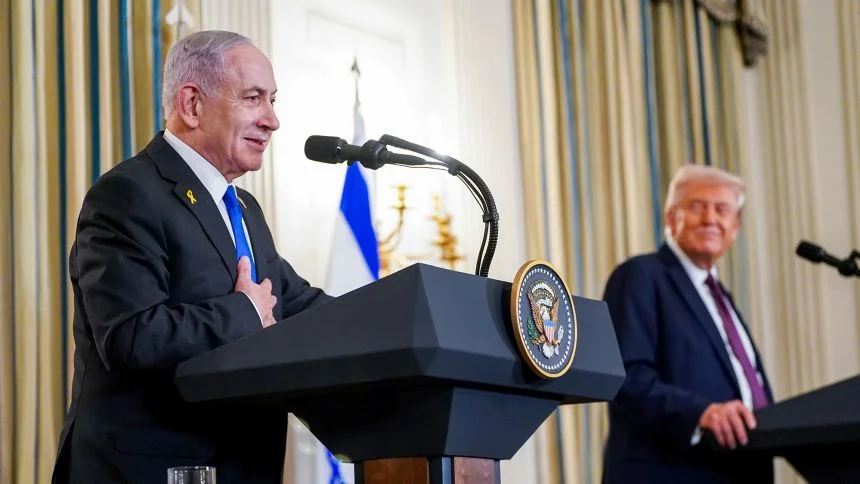
Ending the Gaza War
The Broken Ceasefire and Humanitarian Crisis
When Trump took office, a three-phase ceasefire aimed at ending the Gaza war was already underway. Despite early setbacks, including Israel’s military escalation and a humanitarian crisis, diplomacy remains critical.
Trump’s 20-Point Peace Plan
Trump recently introduced a 20-point plan:
- Israel renounces annexation and occupation.
- Hamas relinquishes control over Gaza and releases hostages.
- Arab and Muslim-majority states, including Saudi Arabia, Qatar, Egypt, Jordan, Turkey, Pakistan, and Indonesia, support the initiative.
This framework is seen as the path to ending hostilities, restoring governance, and enabling long-term peace in the region.
The Road to the Nobel Prize
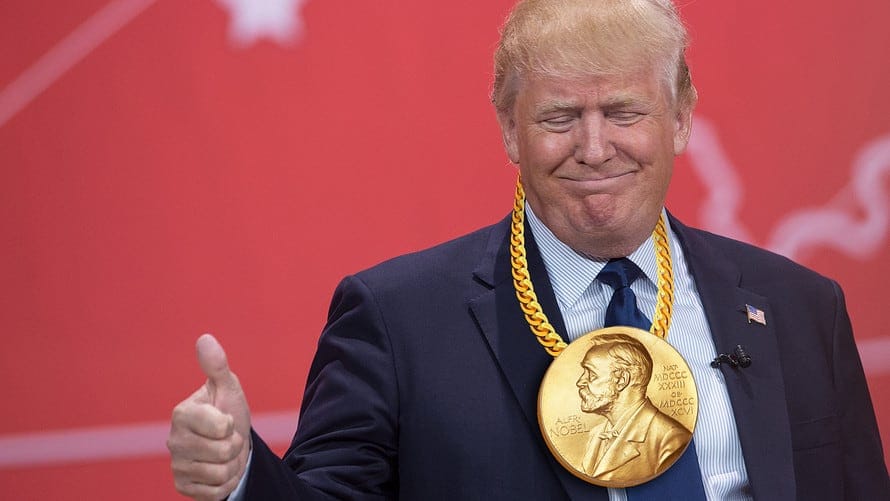
Timing and Criteria
The Nobel Peace Prize is awarded every December 10, with recipients announced two months earlier. While Trump’s immediate chances are slim, 2026 marks the 125th anniversary of the Nobel Prize, creating a symbolic opportunity.
Strategic Implications
Resolving conflicts in Gaza and Ukraine could:
- Reduce the risk of further Middle East instability.
- Deter Russian ambitions in Europe.
- Influence global security dynamics, including Taiwan and broader international relations.
Successful diplomacy on these fronts would significantly bolster Trump’s Nobel credentials.
Why Trump Could Claim the 2026 Prize
- Frameworks in Place: Trump and his team have contributed to ceasefire plans and negotiations.
- Global Support: Broad international backing increases the credibility of peace initiatives.
- Follow-Through: Continued focus and execution over the coming year could seal a genuine peace achievement.
Whether or not one supports Trump politically, his actions in these two critical conflicts are worth noting for anyone interested in global peace efforts.
FAQs
Q1: Can Trump realistically win a Nobel Peace Prize in 2026?
A1: Yes, if he helps resolve ongoing conflicts in Ukraine and Gaza, establishing lasting peace frameworks.
Q2: What role has Trump played in Ukraine peace talks?
A2: He has supported military aid, sanctions, and diplomatic negotiations to shape a possible settlement.
Q3: How does the 20-point Gaza plan work?
A3: It includes Israel renouncing occupation, Hamas relinquishing control, and international support for reconstruction and governance.
Q4: Why is the Nobel Peace Prize significant for Trump?
A4: Winning would recognize his contributions to international diplomacy and conflict resolution on a global stage.
Q5: Who decides the Nobel Peace Prize winner?
A5: The Norwegian Nobel Committee evaluates nominees and selects the winner based on verified contributions to peace.
Conclusion
Trump’s pursuit of the Nobel Peace Prize may seem ambitious, but the groundwork in Gaza and Ukraine is crucial. If sustained diplomacy and international cooperation succeed over the next year, the 125th Nobel Peace Prize could very well be within reach.
